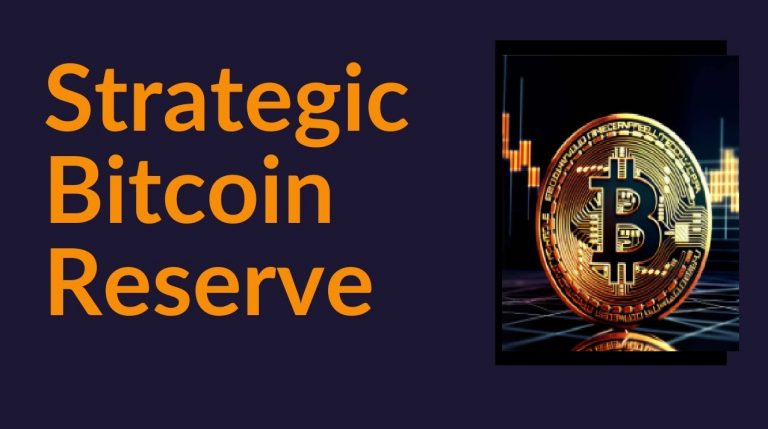
Know Labs, Inc. (NYSE American: KNW), a company specializing in non-invasive health monitoring solutions, announced on June 6, 2025, that it has entered into an agreement with Goldeneye 1995 LLC, an affiliate of fintech investor and former Ripple Chief Risk Officer Greg Kidd, to acquire a controlling interest in the company. As part of this transaction, Know Labs will adopt a Bitcoin treasury strategy, incorporating 1,000 Bitcoin (BTC) into its balance sheet, valued at approximately $105 million at a BTC price of $105,000.
This move positions Bitcoin as a central component of the company’s treasury, representing about 82% of its $128 million market capitalization, with an implied multiple of net asset value (mNAV) of 1.22x. The acquisition involves a combination of 1,000 BTC and cash to retire debt, redeem preferred equity, and provide working capital, with shares priced at $0.335 each. Upon closing, expected in Q3 2025 pending shareholder approval, Greg Kidd will become CEO and Chairman, while founder Ron Erickson will transition to Vice Chairman and President of a new diagnostics research division.
The stock surged 206.97% to $1.56 on the announcement day, reflecting market enthusiasm for the strategy. This aligns with a broader trend, as over 225 companies globally now hold Bitcoin in their treasuries. The decision by Know Labs (NYSE: KNW) to acquire 1,000 BTC and implement a Bitcoin treasury strategy has significant implications, both for the company and the broader market, while also highlighting a growing divide in corporate and investor perspectives on Bitcoin as a treasury asset.
Register for Tekedia Mini-MBA edition 19 (Feb 9 – May 2, 2026).
Register for Tekedia AI in Business Masterclass.
Join Tekedia Capital Syndicate and co-invest in great global startups.
Register for Tekedia AI Lab.
By allocating ~82% of its market cap ($105M in BTC out of $128M) to Bitcoin, Know Labs is betting heavily on Bitcoin’s long-term value appreciation. This could strengthen its balance sheet if BTC prices rise but exposes it to significant volatility risk. The 206.97% stock surge on June 6, 2025, suggests investor enthusiasm, positioning Know Labs as a Bitcoin proxy stock, similar to MicroStrategy. This could attract crypto-focused investors but alienate risk-averse shareholders.
The influx of 1,000 BTC and cash from Goldeneye 1995 LLC provides working capital and debt retirement, potentially stabilizing operations. However, Bitcoin’s illiquidity compared to cash could complicate short-term financial obligations. Greg Kidd’s appointment as CEO, with his fintech background (ex-Ripple), signals a pivot toward integrating blockchain or crypto-related strategies into Know Labs’ core business, despite its focus on non-invasive health monitoring.
The creation of a diagnostics research division under Ron Erickson suggests a dual strategy, balancing traditional operations with a crypto-centric financial approach. Bitcoin’s price swings (e.g., $105,000 per BTC as of June 2025) could erode treasury value if prices drop significantly. Holding a large BTC reserve may attract regulatory attention, especially if U.S. policies shift under evolving crypto regulations.
The focus on Bitcoin may divert resources from Know Labs’ core health tech mission, potentially impacting innovation or market competitiveness. Know Labs joins over 225 companies globally holding Bitcoin in their treasuries, reinforcing the trend popularized by MicroStrategy and Tesla. This could inspire smaller public companies to follow suit, especially in tech or fintech sectors.
The mNAV multiple of 1.22x suggests investors are willing to pay a premium for Bitcoin-backed companies, potentially driving valuations in this niche. The strategy validates Bitcoin as a corporate reserve asset, especially in a high-inflation environment or amid distrust in fiat currencies. It signals growing institutional acceptance of BTC as a hedge against monetary policy risks. However, it may pressure Bitcoin’s price upward in the short term due to increased corporate demand, potentially exacerbating volatility.
The stock surge reflects a segment of investors betting on Bitcoin’s growth. This could amplify interest in “Bitcoin stocks,” creating a new asset class for retail and institutional investors. Conversely, it may deter conservative investors wary of crypto’s risks, leading to polarized shareholder bases. Companies like Know Labs, MicroStrategy, and investors like Greg Kidd view Bitcoin as a store of value, inflation hedge, and alternative to cash reserves. They argue it protects against currency devaluation and offers asymmetric return potential.
This camp drives BTC demand, potentially pushing prices higher and encouraging more firms to adopt similar strategies. It also fosters innovation in crypto-finance integration. Crypto enthusiasts, younger retail investors, and tech-focused funds are likely to back such moves, seeing them as forward-thinking. Traditional investors, financial analysts, and risk-averse institutions view Bitcoin as speculative, volatile, and unsuitable for corporate treasuries. They argue it distracts from core business operations and exposes firms to undue risk. Critics highlight Bitcoin’s lack of intrinsic value, regulatory uncertainties, and environmental concerns tied to mining.
They may see Know Labs’ move as a governance red flag, questioning management’s focus. This group may divest from Bitcoin-holding companies, creating volatility in their stock prices and potentially limiting broader corporate adoption. The divide reflects broader debates on fiat vs. decentralized finance, with Bitcoin adopters challenging traditional financial systems and skeptics prioritizing stability and regulatory compliance. Tech and fintech firms are more likely to embrace Bitcoin, while traditional industries (e.g., manufacturing, healthcare) may resist, creating a sectoral divide in corporate finance strategies.
The divide extends to investors, with crypto bulls flocking to Bitcoin-backed stocks and traditionalists favoring diversified, non-crypto portfolios. This could lead to bifurcated capital flows in equity markets. Know Labs’ Bitcoin treasury strategy is a bold move that could redefine its financial and market identity, capitalizing on Bitcoin’s potential while risking volatility and operational focus.
It amplifies the trend of corporate Bitcoin adoption, but also deepens the divide between crypto advocates and skeptics, shaping investor behavior, corporate strategies, and market dynamics. The long-term success of this strategy hinges on Bitcoin’s price trajectory, regulatory developments, and Know Labs’ ability to balance its health tech mission with its crypto pivot.



